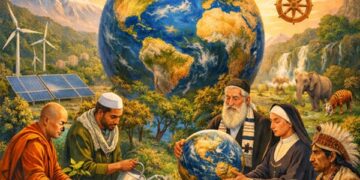By: Ayaan saroori
Democracy is a fundamental structure that has been followed in India since independence. However, we cannot fully enjoy all the rights and freedoms of independence unless we have the opportunity to participate in all democratic exercises, particularly in electing representatives to strengthen the representative form of democracy. Elections are one of the most important exercises in a democracy and take place periodically to maintain the socio-political stability of a country.
Elections can be defined as a formal decision-making process by which citizens elect a representative or multiple representatives to hold public office. It is a procedure to choose representatives. Before independence, India witnessed the election process, but electoral rights were not fully enjoyed, and the participation of Indian representatives was limited.
Post-independence, the first general elections were held in 1951-52 with millions of eligible voters, though only a portion of them participated. The Indian National Congress, led by Jawaharlal Nehru, won the majority in these elections, setting the stage for India’s parliamentary democracy. Over the time, the Indian National Congress (Congress party) remained in power with different elected representatives.
For fair elections, various evolutions have taken place, one of which is the establishment of the Election Commission of India in 1950. The Commission was created with the aim of ensuring free and fair elections. It introduced several beneficial reforms, including the use of Electronic Voting Machines (EVMs), voter identity cards, and other processes to ensure transparency in the electoral process.
What makes elections democratic?
Elections should be conducted in a free manner without any manipulation and voters should be able to cast their vote without hurdles. All eligible citizens should be given proper voting identity without discrimination based on socioeconomic status, race, gender or religion etc. Second is regular election on fixed intervals- this is important to ensure that government is accountable to people.
In Jammu and Kashmir, assembly elections are going to be held after 10 years, an unusual thing in nay democracy .Therefore, the announcement of elections which are going to be held soon, is a welcome step and people and elated by the thought of participating as well as enjoying democratic right of participating in elections and choosing representatives.
Elections commission of India— a constitutional body formed in 1950 by constitution of India is empowered to conduct free and fair elections. It does not affiliate with any government or particular ruling party due to which it has remained impartial.While it monitors each and every activity of political parties or candidates in terms of funding for campaign,media coverage and other means, it also announces or imposes Model Code of Conduct which is a mechanism to ensure that there are no issues of undue favour or biased narraives etc.
Many countries conduct elections regularly, but when there is no competition between opposing candidates, these elections become entirely undemocratic. For elections to be truly democratic, it is essential that multiple candidates stand for election, creating competition and providing citizens with real choices, all within a framework of the rule of law and a fair election process.
Countries like North Korea and Belarus, however, conduct elections just for the sake of it. These elections are far from democratic, as they are marked by force and oppression. What real benefit can come from elections that are neither free nor fair?
Moreover, elections should be competitive, with candidates from different parties or independent candidates vying for votes. It is also crucial to adhere to the rules and regulations set by the Election Commission of India. Not all elections are democratic, but in India, elections are conducted through an independent constitutional body—the Election Commission—with transparency and in accordance with the rule of law. Since independence, India has maintained a democratic election process, which is vital for democracy and empowers citizens to choose their representatives.
For the impartial voting and monitoring the entire exercise, a constitutional autonomous body takes all the responsibilities.India being a populous country,it is not possible to vote through any other means and for easy and fair voting commission has set up Electronic voting machines(EVM’s) on which any eligible person can vote.This system of commission is valuable and proved beneficial in various election processes although there have been some allegations of manipulation and electoral fraud which haven’t been proved. Infact the Commission neutralised all the allegations through independent audits and testing, conducted open challenges and various public demonstrations to prove all allegations were actually baseless.
The writer is a student and author of ‘Drug: A Risk For Teens’ (ayaansaroori8@gmail.com)


